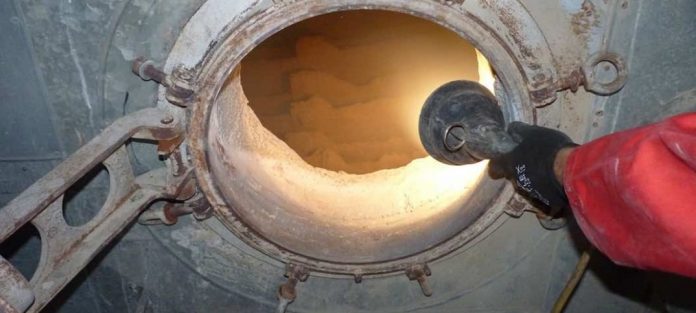Barrister claims “small cabal in GCC” withheld vital information from public.
A decision in the High Court case over the controversial Urbaser Balfour Beatty operated waste incinerator at Javelin Park on the M5 is not now expected for some weeks. This follows the fourth and final day of the “Preliminary Issues” stage of the case, which is being brought by environmental campaign group Community R4C against Gloucestershire County Council. His Honour Judge Russen QC withheld his decision at the conclusion of a hearing Wednesday 24th June, where concluding remarks were made by both sides’ barristers in a Zoom video conference.
In the case, Community R4C (CR4C) claims the County Council breached procurement law by not re-tendering the contract for the massive incinerator, despite a rise in costs on a previously c£450m contract of over £140 million, a 30 per cent increase. The “preliminary issues” the judge has to decide upon are technical objections to the claim, raised by GCC: whether CR4C brought their case within 30 days of discovering the Council’s breach of procurement law; and whether they would have been a credible bidder had there been a re-tender back in 2015/2016, as there should have been.
Representing Community R4C, barrister Duncan Sinclair said that they could not possibly have known about the breach when even Councillors did not. He said: “CR4C didn’t know and they couldn’t know. The evidence is consistent and compelling that all but a small cabal within Gloucestershire County Council was in the dark. The Council resisted disclosure of even the first (2013) contract before the Information Commissioner’s Office (ICO) and on appeal for four years. It then resisted disclosure of any details of the 2016 contract through the ICO and by appealing – until it released documents on 20 December 2018. Upon release of the details there was an outcry, including amongst many councillors, MPs and others. My client has offered cogent evidence that it would have formed a consortium and bid for the putative contract. The prospects of not only bidding but winning a putative contract were very significant.”
Mr Sinclair went on to say that C4RC was bringing its case primarily in the public interest. They sought judicial recognition that GCC had breached the law, awarding, without tender, a revised contract that cost it over £140m more than the competitive result signed in 2013. He noted that there is an ongoing investigation by the auditor to GCC, Grant Thornton. The auditor could use its powers in light of the findings of the Court at full hearing. Finally, and importantly, if ultimately a breach of procurement law is found at final trial, there will be a solid basis for the UK Government/Courts to find that the uplift of £140m by UBB in the contract price is unlawful state aid. Any overpayment to date would then be recoverable from UBB, meaning GCC might immediately have £10’s of millions to spend on public services – savings on any future payments.
Tom Jarman of Community R4C said: “Covid is affecting all our lives but an even bigger problem for us all is environmental damage. We believe this is a landmark environmental case. It’s a remarkable story of a community seeking to deliver a low cost, low carbon waste treatment option which does not simply burn plastics and other recyclable resources. We are very grateful to all our supporters across the county and to our many donors and especially to our tireless legal team who have done much of this work pro bono or at cost. We all have our fingers very much crossed for the judge’s decision.”
If the judge decides in CR4C’s favour, the case will move to the next stage to determine the substance of the case against the Council. If he decides against them, they may have the opportunity to appeal.
Source: R4C




